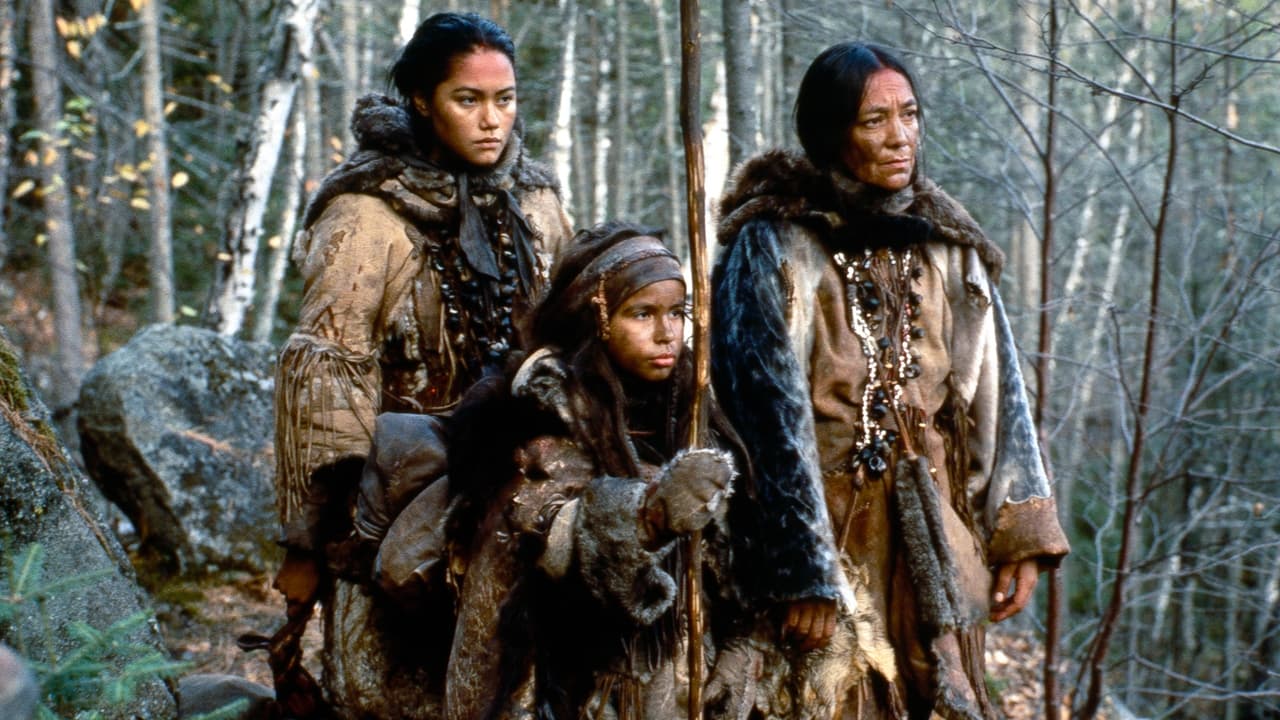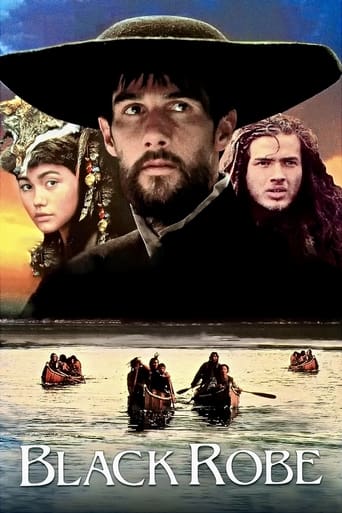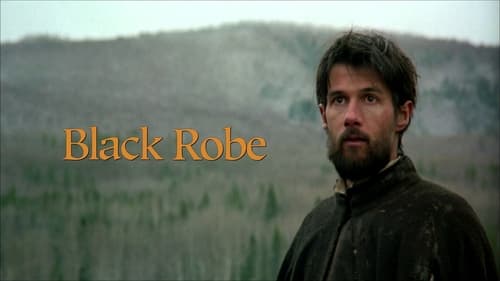



A Masterpiece!
I am only giving this movie a 1 for the great cast, though I can't imagine what any of them were thinking. This movie was horrible
View MoreIt's an amazing and heartbreaking story.
The movie's not perfect, but it sticks the landing of its message. It was engaging - thrilling at times - and I personally thought it was a great time.
View MoreI saw this film the year it came out. At the time, I was representing the administration of New York Governor Mario Cuomo in conducting relations with the Haudenosaunee, particularly the Mohawks of Akwesasne. Having grown to respect and admire the resilience and determination of these remarkable people, "Black Robe" made a big impression on me.I spent a little over two years (1990-1992)engaged with the Mohawks settling the issue of providing for their public safety needs and negotiating a state/tribal casino gaming compact. Both of these initiatives ultimately ended successfully. The process of developing an indigenous public safety force involved multilateral discussions involving the Mohawks, New York, Quebec and Ontario. It was interesting to me how many of my colleagues had seen "Black Robe" and agreed that it was a beautiful and fairly accurate depiction of history and cultural frictions that persist to this day. To those of us sitting around the table, "Black Robe" gave us a sense that we were playing a meaningful part in a long and fascinating history of the meeting of cultures and hard work that goes into creating a relationship of mutual understanding and respect.Terry O'Neill, Esq. Albany, NY
View MoreI felt compelled to register and leave a review after reading a couple of the old critics reviews. The end left one thinking it was all heading to nothing?! Bleakness for the sake of bleakness etc. The end is excellent and beautifully portrayed to the extent didn't you love them all as well. It ends with a beautifully poignant moment and the little history that comes up confirms the end for the priest was not about the result or fruits (unlike the old priest who was willing to sell baptism as magic for conversations) but the faith itself, which actually ended being forged through his journey from an intellectual concept to one of love, the message of Christianity. Do you love us Black Robe, the faces and yes, genius. Lovely pace and rhythm to it and the man who felt it was all in bleak grey weather should go to a tanning salon, Canada-winter!, I will give it 10 not because I believe it but its a hell of a lot more than 7.1 when you look at the score of some superficial s... on this site. Loved it. ps one critic thought his point about Indians having gods put across nebulously, eh clarity is not simplistic. I was clear what he was saying and it was not judgemental, that was the joy, there is no answer,live with or watch Hollywood smuck the whole of your life and don't go out. It was pretty close to art which is not common in commercial film.
View More'The English and the Dutch have colonists, we have priests' we hear a French militia man saying in the beginning of the film set sometime in 1630s at a French outpost somewhere in Quebec, Canada. The priest who is seen walking past the militiamen and construction workers is father Laforgue (played by Lothaire Bluteau; a great performance). Laforgue is a young Jesuit sent from France to the New World to convert the Hurons and other indigenous tribes that lived once in large areas of Canada and the northern states of the US.To aid Laforgue in his mission the local French authorities ask a group of Hurons (allies of the French at the time) to accompany him until he reaches a Jesuit-controlled mission much deeper in Quebec. During the trip of the group we see past moments of the life that Laforgue left behind in France (through a number of flashbacks) before deciding to commit himself to such a task in the New World. The trip is dangerous. We learn that except the actual hardships of the trip the Hurons will try to avoid the Iroquois (at least other tribes of the Iroquois nation, since the Hurons were part of the great Iroquois nation) and the English who have started to become more powerful than the French in the region.Soon, however, friction begins. For the Hurons (a traditional pagan society with Shamans acting as the intermediaries with the spirits) the Christian message of Laforgue 'love your neighbor' will mean certain death to the hands of the Iroquois. Therefore, they view father Laforgue with suspicion, even hatred after a while believing that he is a demon (especially after he demonstrates to them the reading of a book, a fact that unsettles them) and they start to wonder if it is worthwhile to risk too much for a person who promises them a paradise in an afterlife after death.'Black Robe' is a very interesting film but I think it is not for everyone. To start with it is not entertaining, it is not epic. There is no 'payback' for this mission that Laforgue undertakes. Despite the idyllic scenery of the New World the trip is very hard and demanding and the eventual conflict with the Iroquois is very harsh. Laforgue, nonetheless is a brave man and perseveres. His conviction to introduce Christianity to the Hurons and convert them is too strong and gives him the courage to go on. The question is if it was worthwhile. The movie cleverly avoids taking sides on this matter. I believe this is the big question that the movie asks and there is no easy answer. A 9/10 from me.
View MoreBrian Moore grew up in Northern Ireland and considered joining the priesthood before he moved to Canada and abandoned his Catholic religion later in life. I've not read this nor any of his other novels, but I am told that on several occasions he explored the idea of a priest losing his faith, and I wonder if perhaps, in spite of his outward angst against the Irish clergy, he wasn't in fact (like so many ex-Christian writers) struggling to cast of his guilt and to justify abandoning his own vocation.In "Black Robe," for which Moore wrote the script as well as the book, he has chosen not to inject overtly anti-clerical themes. Perhaps he preferred to let the times speak for themselves: the French clergy in North America did most certainly believe in their mission to convert the Natives to Christianity, and no one believed in any sort of philosophical or cultural relativism. To the modern, deracinated and denatured man, this is offensive in and of itself and there would be no need to add the demonising of clerics so ubiquitous to contemporary cinema.But to those who dare question the modern liberal conscience, this film is done accurately enough to sympathise with and appreciate the Jesuit's mission. The French are portrayed as sympathetic but imperfect: the clerics are naïve and occasionally condescending in their dealings with the Natives, but as we watch their efforts unfold Moore, whether he meant to or not, shows that they truly wanted and tried to understand and relate to these poor souls they ministered to.And to pray for the salvation of these "poor, savage souls" was hardly condescending, and not only from a Catholic standpoint. For the Natives, life was short, violent and fearsome; death was always around the corner. Their religious beliefs were tightly wound with their daily routine and way of life (as they are in all pre-"Enlightened" societies, including those of Europe and European North America) and with life so tenebrous they feared anything innovative would completely destroy them. "We have accepted the gifts of the French, and we have come to depend on them. That will be the end of us." This is evident in Chomina's gradual coming to grips with Christianity and with the Abbé Laforgue (known to the Natives as "Black Robe"), but his unwillingness to let go and accept Baptism even on his deathbed. The Huron sense that the transformative power of the Baptismal water is so profound that they will "cease to be Huron," that their enemies, the Iroquois, will sense their weakness and destroy them.And yet, Moore has so successfully replicated the brutish world of the Native American that the viewer who can overcome modern Political Correctness will indeed find himself wishing not for their destruction but that they and their enemies could, in one sense, cease to be Huron, cease to be Iroquois, for their own sake and for each other's, before it is too late! And they, too, understand this: as Abbé Laforgue reminds his young companion, "These people are gifted with intelligence." It is significant that Abbé Laforgue himself is perceptive enough to realise that fact, even though their intelligence is one that he can never understand. The movie ends on an apparently hopeful note and then reveals--through text--something utterly depressing about the near future, reflecting perhaps Moore's reluctance to show a happy triumphant Christian ending. But Moore neglects to tell us the complete story or to allow us to see hints of the ultimate triumph.Romanticists will be sorely disappointed by "Black Robe," demolishing as it does that nice little myth of the Noble Savage, which has never amounted to anything more than a childish fairy tale. Leftists, too, many not appreciate it, for though it depicts the characters from their own and from each other's perspectives, the reality is that pre-colonial Native American culture was often excruciatingly cruel: as Chomina himself confesses, he is as selfish and sinful as any white man. There is neither postmodern white guilt complex here, nor the crass Cowboy and Indian games of old Westerners. In fact, there is very little in this film with which to sympathise from the standpoint of the modern "Enlightened" liberal conscience, and thank God for that! At last we have a movie about real human beings defined by their own time. The cinematography, moreover, is stunning: one truly feels the profoundity of the loneliness in the vast empty continent of North America. One complaint, though: if Moore went to this much trouble to portray the Natives speaking their own languages and Abbé Laforgue praying in Latin, couldn't the French have spoken to each other in FRENCH and not English??
View More